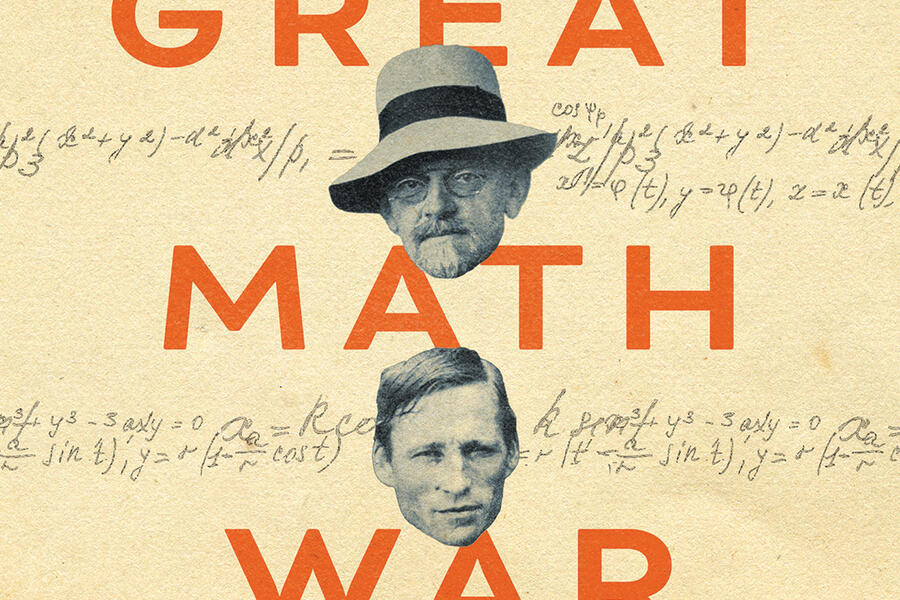For someone outside the mathematics community, the idea of mathematicians at war with each other over the future of their craft may seem ridiculous. For one like me trained as a mathematician, the idea also seems odd since we rarely ever really compete. Two mathematicians struggling with the same problem will simply work together and share the glory of its resolution.
But the discipline of mathematics research was in crisis in the first decades of the 20th century. The nature of proof was in flux. Logical inconsistencies abounded. What the heck was this "infinity" thing anyway? People discovered that the foundations of mathematical thought were shaky at best.
To continue to thrive, mathematics as a discipline needed to grow up. But how? Is mathematics just crystallized logic, as Bertrand Russell believed? Did we just need a good formal axiomatic basis from which all math can eventually be derived, as David Hilbert opined? Or, as E.J. Brouwer wrote, was math something more of a human endeavor, intuited only from what could be constructed—and what couldn't be constructed just shouldn't exist?
Jason Socrates Bardi, A&S '98 (MA), '01 (MA), in The Great Math War, documents the events leading up to and through this existential crisis besetting the mathematics world, illuminating all the twists and turns. During these influential times, which saw great inventions horrifying wars, and world-changing events, the math world went from a quiet, insular place of discovery and collaboration to a three-pronged battlefield, with entrenched encampments, skirmishes and full-out battles, sabotage, and spoils.
Bardi shines light on the central characters, their personal lives as well as their professional actions, and brings to life a snapshot of one of the most tumultuous periods in the history of the mathematics community. We rarely glimpse the emotional side of mathematical research and the life of the academic. We never see just how influential world events can be on mathematics, or how mathematics can influence world events. And we certainly never get the chance to see the human side as we do here. This book is fun, playful, rollicking at times, and tragic at others.
Posted in Arts+Culture, Science+Technology
Tagged book review








